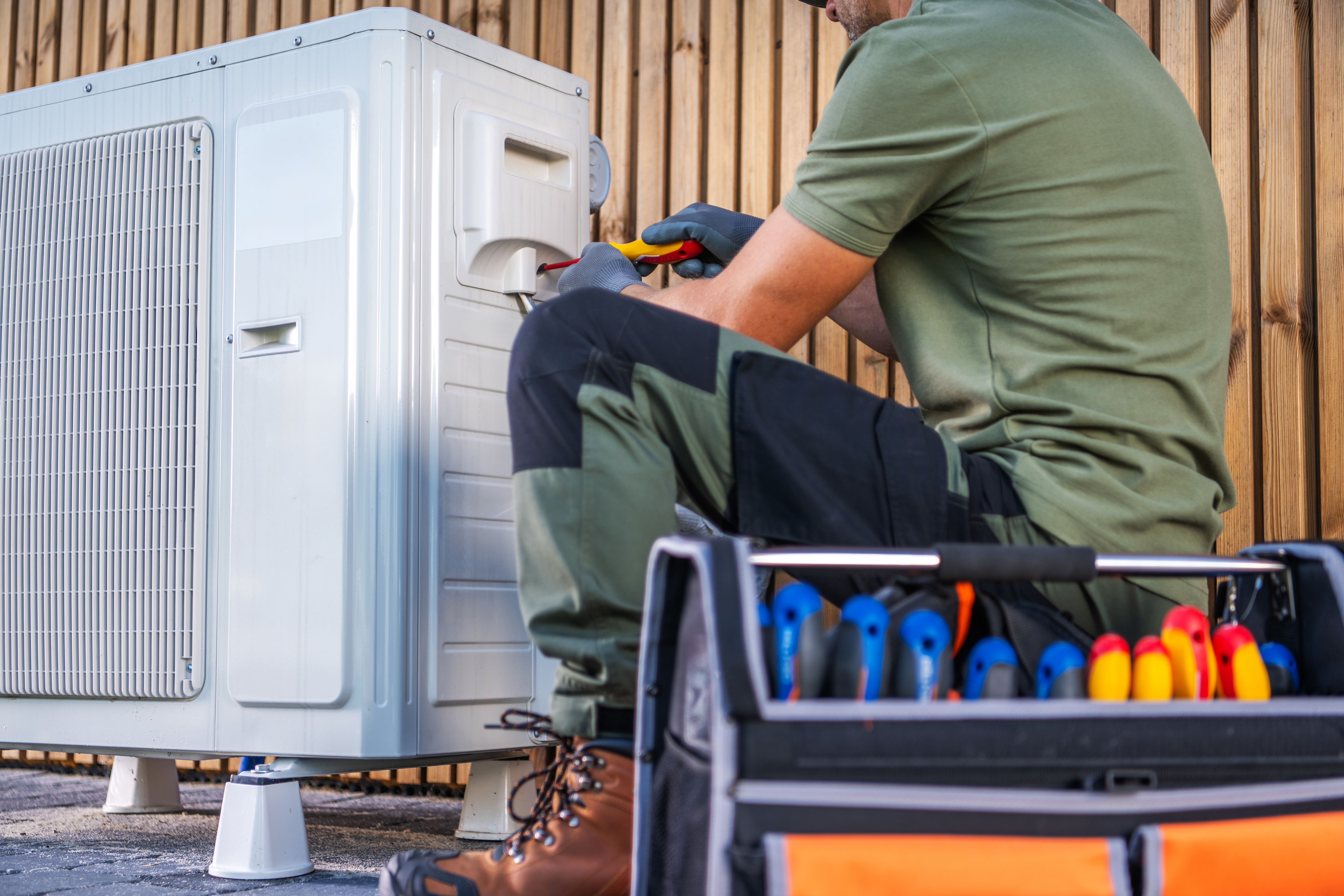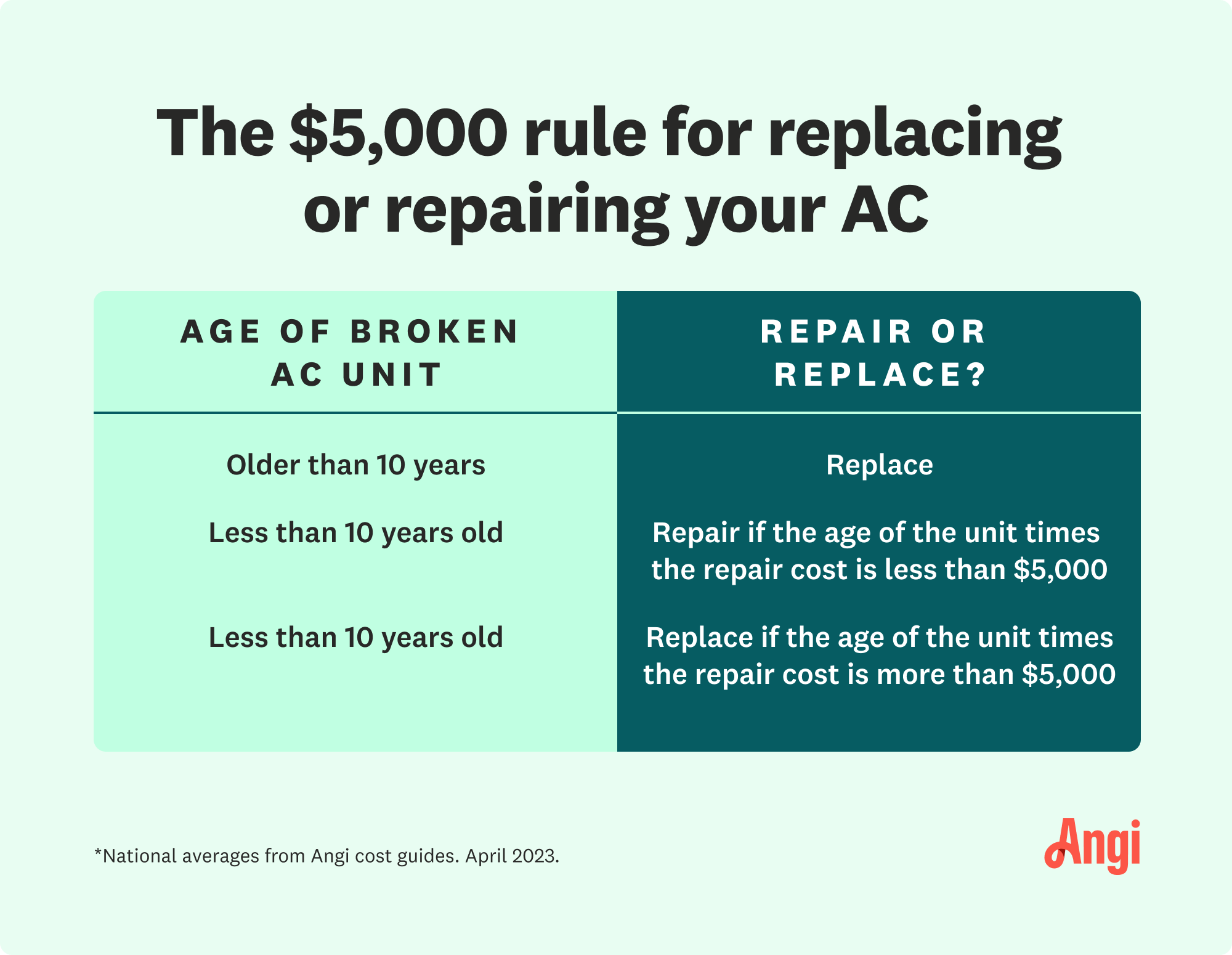
What you’ll pay in Columbus, OH, for furnace repairs depends on many factors. Here’s a breakdown of what can go wrong and the cost to fix those issues.
Heating and air conditioning service costs depend on your project and location. Check with a local pro for your specific job.
In Atlanta, replacing your AC unit costs around $4,862.
However, depending on the specifics of your installation, you could pay between $3,354 and $6,637.
Some of the factors that affect AC replacement costs in Atlanta, Georgia, include the AC unit itself, labor, and permit fees.
A new AC unit is a huge plus for homebuyers in Atlanta, where summers are hot and muggy.
The average AC replacement cost in Atlanta, Georgia, is $4,862, with most homeowners in the city paying between $3,354 and $6,637 for new air conditioning. With the region’s hot and humid summers, AC is a near-necessity in Georgia’s capital. If yours could use an upgrade, here’s how to figure out what you should budget for a new AC unit in Atlanta.
Air conditioners come in a variety of types, sizes, and efficiency levels—all of which influence your AC replacement costs in Atlanta.
From budget-friendly portable AC units to whole-home central AC, there are several types of air conditioners—and the one you choose will have a major impact on your overall costs.
If you live in a historic Grant Park bungalow, for example, your home might not have ductwork. In that case, you might opt for a ductless mini-split system, which starts around $2,000. On the other hand, if you live in a newer single-family home, your property should be equipped with central AC, which runs between $2,500 and $4,500.
| AC Type | Average Unit Cost | Pros | Cons |
|---|---|---|---|
| Portable unit | $100–$500 | Least expensive | Can only cool small spaces |
| Window unit | $150–$800 | Easy installation | Limited cooling capacity |
| Ductless mini-split system | $2,000–$3,000 | Provides built-in zoning | Installation can be pricey |
| Central | $2,500–$4,500 | Convenient | Requires ductwork |
The size of your AC unit—in tons or British Thermal Units (BTUs)—is something else you’ll need to consider when calculating your AC replacement costs in Atlanta. With AC sizes, the higher numbers correspond to larger cooling capacities.
BTU, or British Thermal Unit, is a unit that measures how much energy it takes to raise the temperature of one pound of water by one degree Fahrenheit. For heat pumps, each ton of capacity is equivalent to roughly 12,000 BTUs.
Since Atlanta experiences more heat and humidity than many other parts of the country, AC units here tend to be bigger than in cooler regions.
Not sure which size is best? Ask an AC professional. If you buy an AC that’s too big or too small for your home, you could end up with all kinds of issues, including higher energy bills and uneven cooling throughout your home.
| AC Tonnage | BTUs | Average Unit Cost |
|---|---|---|
| 1.5 | 18,000 | $1,300–$4,000 |
| 2 | 24,000 | $1,500–$5,000 |
| 3 | 36,000 | $2,000–$5,500 |
| 4 | 48,000 | $2,600–$6,200 |
| 5 | 60,000 | $2,800–$6,800 |
Your AC unit’s Seasonal Energy Efficiency Ratio (SEER) rating (or its SEER2 rating, an updated version of the SEER system) measures how efficiently the unit cools your home. Like AC sizes, higher SEER and SEER2 ratings equal more efficient units (and lower electric bills for you). However, high-efficiency air conditioners also come with steeper price tags.
When you buy a new air conditioner in Atlanta, it must meet the region’s minimum HVAC efficiency standards, which are:
| Size of AC Unit (in BTUs) | Minimum SEER Rating | Minimum SEER2 Rating |
|---|---|---|
| Less than 45,000 | 15 | 14.3 |
| Equal to or more than 45,000 | 14.5 | 13.8 |
It takes more time and effort to work on HVAC systems in hard-to-access places, like attics and crawl spaces. If part of your system (like your indoor AC unit or ductwork) is in one of these spots, your AC installer in Atlanta, Georgia, may charge higher labor rates due to the inconvenience of reaching them.

In addition to these factors, there are a handful of other things that affect your AC replacement costs, including permits, sales tax, and rebates.
In Atlanta (and the rest of Georgia), technicians who install or replace air conditioners must be licensed by the Georgia State Board of Conditioned Air Contractors. They should also be certified by the Environmental Protection Agency (EPA) to handle refrigerants.
If you're looking for the most knowledgeable, experienced professionals, look for AC technicians who hold a certification from North American Technician Excellence (NATE), as well.
You or your contractor can apply online for a mechanical permit, which is required for all HVAC work in Atlanta. (There is an exception if you’re only replacing an existing AC condenser unit.)
The base fee for this permit is $175, but there are also additional fees that depend on the size of your system and whether your job includes modifying air ducts.
Atlanta’s combined sales tax rate is 8.9%, which includes the Georgia state tax and various local taxes. This might not bump up your costs too much on a portable or window AC unit, but if you buy a $4,500 central AC, you’ll pay about $400 in sales tax.
Georgia Power customers in Atlanta can get a $1,000 rebate for installing a ductless mini-split system in their homes. To be eligible, you’ll need to hire a licensed HVAC professional to install the system.

Upgrading an old or outdated AC unit can boost your home’s resale value in most places. But it’s particularly beneficial in Atlanta, where hot temperatures and high humidity levels make it challenging to live without AC. With this type of project, you’ll see a return on investment (ROI) of about 30%.
Something else to consider: According to the U.S. Energy Information Administration (EIA), almost all households in Georgia have air conditioning. So, if you’re selling a home in the state’s capital, most buyers will expect it to have working AC.
Home is the most important place on earth, which is why Angi has helped more than 150 million homeowners transform their houses into homes they adore. To help homeowners with their next project, Angi provides readers with the most accurate cost data and upholds strict editorial standards. We survey real Angi customers about their project costs to develop the pricing data you see, so you can make the best decisions for you and your home. We pair this data with research from reputable sources, including the U.S. Bureau of Labor Statistics, academic journals, market studies, and interviews with industry experts—all to ensure our prices reflect real-world projects.
Want to help us improve our cost data? Send us a recent project quote to [email protected]. Quotes and personal information will not be shared publicly.
From average costs to expert advice, get all the answers you need to get your job done.

What you’ll pay in Columbus, OH, for furnace repairs depends on many factors. Here’s a breakdown of what can go wrong and the cost to fix those issues.

Repairing ductwork in a crawl space is frustrating and difficult, which is reflected in the cost. Learn why limited access results in a premium cost beyond just a simple increase in labor hours.

Getting AC and furnace replacement done at the same time can lead to huge benefits for your wallet and your home. Here’s everything you need to know.

There are few things more important to homeowners than keeping their AC systems running. Use this guide on AC leak repair to keep your home cool and comfy.

Not sure who to hire to install radiant floor heating? Learn which pros handle radiant floor heating installation and how the work comes together.

Do you have a clogged AC drain line? We dig into the reasons behind those pesky blockages and how to clear them for optimal AC performance.